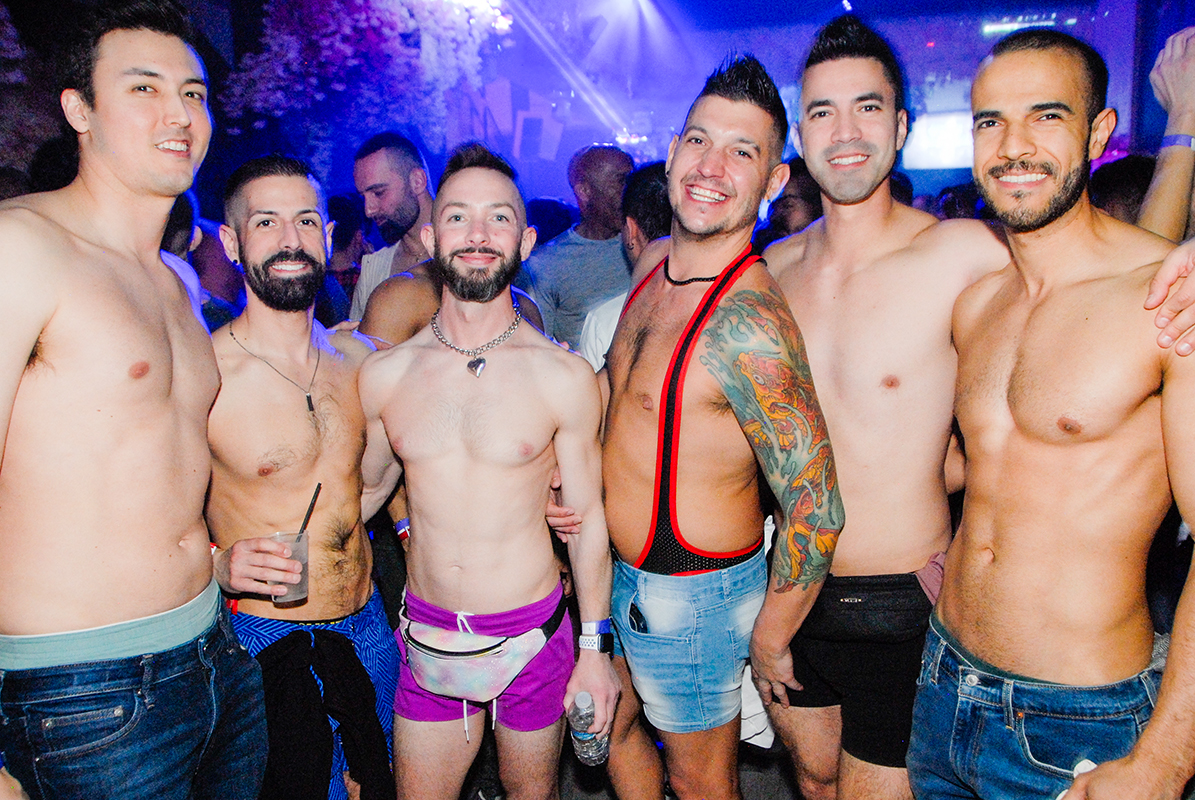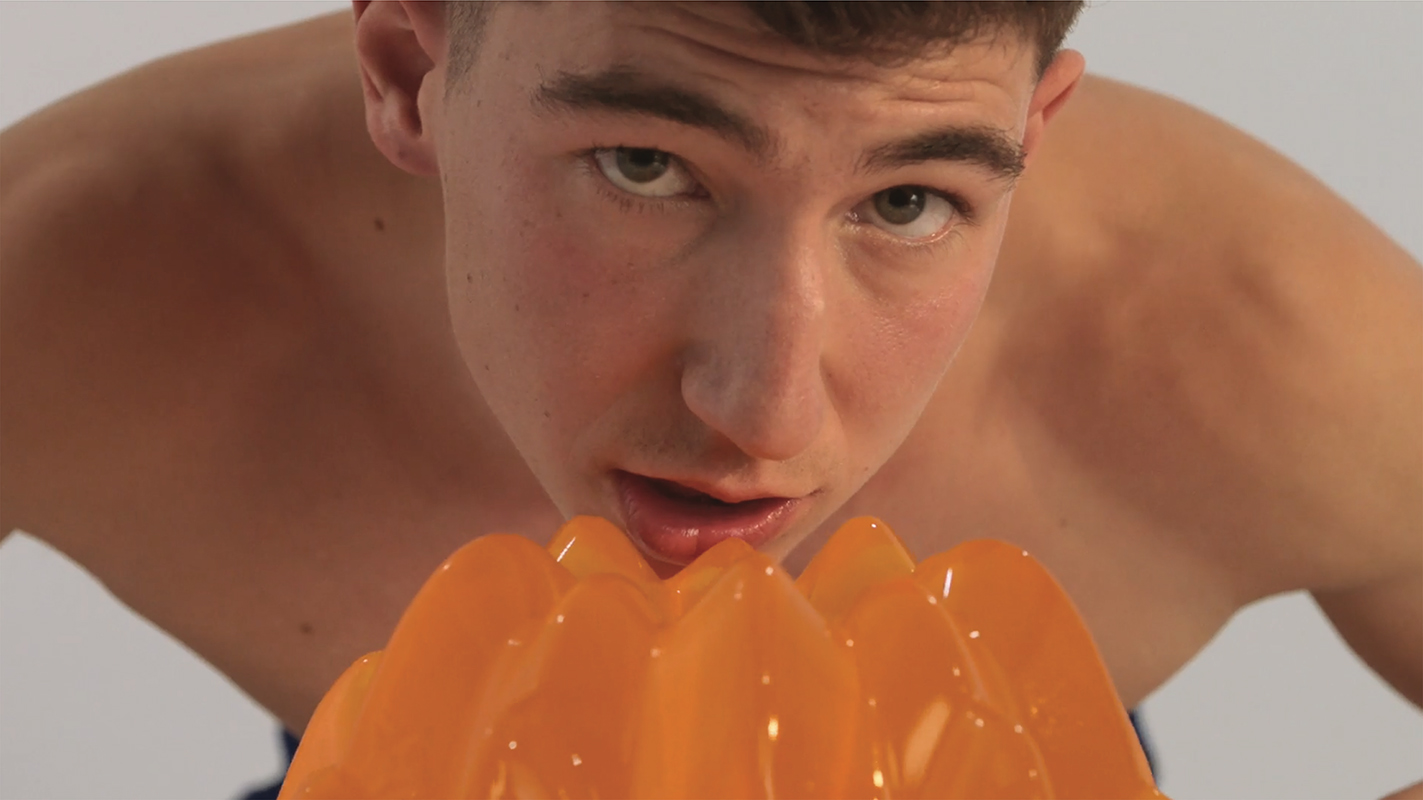Non-Political Parties
Roland Belmares Says Just Relax and Dance
Popular belief says that DJs should pick a musical niche and stick with it because association with a particular style makes them memorable. Roland Belmares doesn’t care.
The Grammys restrict their sole dance music award to a remix of a pop song, shunning originally-produced electronica and enraging purists. Roland Belmares doesn’t care.
Car companies treat songs by highly-respected underground producers of electronic music as interchangeable background beats for their ads. Roland Belmares doesn’t care.
In fact, Belmares, who will be headlining the main event at Cherry 7, takes a laid back attitude toward most of the issues that make other DJs twitch. “It’s all part of progress ” and “Just give it some time ” routinely pop up in his speech. This go-with-the-flow mentality unarguably influences his sets, which are known for their relentless parades of break-free house tracks, big hits and unadulterated fun.
“I don’t take myself too seriously, ” says Belmares, and somehow this idea, coming from a DJ, seems radical. Politics, rather than parties, have increasingly come to dominate the landscape of the DJ community, complicating what once was simple. Belmares prefers to play good music for a dancing crowd. Period. Amen.
At 6 a.m. on a Thursday morning, his phone started ringing. It did it again at 6:30. An interview scheduled for nine o’clock was being initiated three hours too early from the opposite coast. Here’s a little tip for anyone contemplating a job as a journalist: when calling someone outside your time zone, adjust your watch appropriately. Otherwise, you might wake them up at the crack of dawn and piss them off. I figured he would probably be livid.
Lucky for me, Roland Belmares didn’t care.
MW: Sorry about waking you up this morning.
ROLAND BELMARES: No problem. It just freaked me out. When we heard the phone ring, we thought, “Who the hell is calling so early? ”
MW: I didn’t realize that your manager Ken is also your boyfriend. How does that work out for you?
BELMARES: It’s actually great. Since he’s always here, I don’t have to sit around wondering if he’s getting things done, and if either one of us has an idea, we’re right here to talk about it with each other. It’s nice to know that someone you care about is helping you.
MW: Did he become your manager after you had already started dating?
BELMARES: Yeah. We met at Gay Day in Disney World in 1999. It was one of those fairy tale things. The moment we locked eyes we felt like we’d known each other forever.
MW: So when did you first become interested in DJing?
BELMARES: I tried to learn all through high school, but the turntables I had weren’t made for mixing. They didn’t have the steady rotation, so I could never get the beats to match. I thought it was me, that I was just no good at it, so I gave up. But I still had dance in my blood. When I finally figured out that I just needed better equipment I realized, hey, I can really do this.
MW: How long after that did you get your first gig?
BELMARES: Actually my first gig was more of a twist of fate. It was at a gay club called the Forum in Austin in 1997. It was the grand opening, and I had been hired as a bar back and backup DJ. The main DJ cancelled, so I ended up playing the opening night gig.
MW: Were you nervous?
BELMARES: My hands were shaking so badly I could hardly get the needle on the record.
MW: You’re not exactly green as far as DJ experience goes, but you did start more recently than most of the other DJs playing at Cherry. Yet you’re the one playing the main event. How do you account for that?
BELMARES: I think I have a good feel for the audience. When I was still learning, I’d always take mental notes when I’d go to parties. I’d try to pick up the best qualities from Manny [Lehman] and Victor [Calderone], the moments in their sets when the crowd would respond best and create my style using those moments. I thought, “Why just play that way at certain points in the set? Why not play that way all night long? ” I try to keep the energy level to the point where people are thinking to themselves, “When is he going to play a bad song so I can take a break? ” It’s helped me rise more quickly in the ranks — when I play it’s going to be fun all night long.
MW: I would imagine that trying to read a huge crowd at a circuit party would be much more difficult than a smaller crowd.
BELMARES: In a sense, but there’s still something in the air that’s hard to describe, something that I feel like I can pick up on right away. I always try to make sure that at least some of the songs are easily recognizable. It helps keep the camaraderie in the crowd going.
MW: From your description, it sounds like most of your set is improvised rather than planned out beforehand.
BELMARES: I’d say about thirty percent of it is planned out, and the rest just made up as I go along. I have a formula that I stick to somewhat. At the beginning of the night, I usually play very familiar songs just to get the crowd going and out on the dance floor. From there, I start my journey. I don’t ever play a set for myself, playing what I want regardless of what the crowd wants. I’ll experiment and throw in new things, but my main goal is to always keep it sounding familiar.
MW: Is it necessary to be somewhat Type A, organizationally speaking, to pull off such impromptu-style sets?
BELMARES: I’m really only that way with DJing. I make notes for myself because I feel the pressure up there, knowing that the party depends on me. I still get very nervous, especially before a party as big as Cherry. Last year when I played I thought I might throw up. I try not to think about it too much. My friends want to talk about the party before it starts and I won’t let them. I think being a DJ is probably as close as I’ll ever get to being on stage with a spotlight on me.
MW: You don’t seem to anchor yourself in a particular style. Do you have a personal favorite?
BELMARES: I don’t necessarily limit myself to tribal, for example, or underground house. I definitely progress to different styles as the night goes on. And I try to expose new types of stuff all the time. But I would have to say that I like progressive house a lot. I like vocals but not if they’re overpowering — vocals should accent a song, not dominate it. Trance has gotten a little boring, too many breaks, too spacey and ethereal.
MW: There’s definitely been a backlash against all the trance music that was so popular a year or so ago. It’s very emotionally manipulative music.
BELMARES: And it’s gotten very cookie cutter. All these trance songs have the same girl, the same drop, the same big orchestra breaks. For me, I like to revert to that style at the end of the night because I think that it’s an appropriate way to bring a party to a close and give everyone sort of a happy, warm feeling. But even the DJs I know who used to be very big on trance have changed with the times. Eventually people will get tired of house and a more melodic sound will rise again. Dance music goes in cycles. It’s always coming back around.
MW: That makes it seem formulaic.
BELMARES: Definitely. I think dance is one of the easiest forms of music to formulate. It’s so easy to pick the flavor of the week and put it out there with a popular name attached to it. I think that’s why people get the wrong impression of dance music. They see it as a toss-away style. There are a lot of creative people out there and they get lost in all these little songs that people put out to make a quick buck.
MW: The Grammys are a good example of that. They’re so rooted in pop music that the remix category barely even makes it onto the fringe.
BELMARES: But it’s still in its infancy too. Ten years ago, DJs were just seen as jukeboxes who played song after song. Today DJs are treated with almost as much respect as Mariah Carey. It’s not quite to that level but I think it’s definitely headed in that direction. Not that I think it should get out of control.
MW: Like Mariah Carey?
BELMARES: Exactly.
MW: And yet many forms of electronic music have achieved a great deal of commercial success. As in literally “commercial. ” You hardly see a car ad or telecommunications ad on TV that doesn’t have some trance or drum and bass song in the background.
BELMARES: I know. Who would have ever thought that Sheryl Crow and Bette Midler would be having their songs remixed into dance tracks?
MW: Does it bother you to see these genres being used to sell things, though? Especially when the advertisements that feature them seem to consider the songs to be nothing but filler?
BELMARES: I think that’s the natural evolutionary course, especially with the way society works today. It’s all about what makes money. I understand people who don’t want it to become too commercial because it can make it seem superficial, but I think if it’s done right, it does give the music a wider exposure to people who wouldn’t normally hear it.
MW: You seem to have a more relaxed view of it than some DJs of underground music.
BELMARES: I just don’t take it all too seriously, or think of myself as some sort of elevated performer or artist — not in the diva sense, like some other big star DJs. I think that’s what keeps my sets fun. I always remember what it feels like to be out there on the dance floor.
Support Metro Weekly’s Journalism
These are challenging times for news organizations. And yet it’s crucial we stay active and provide vital resources and information to both our local readers and the world. So won’t you please take a moment and consider supporting Metro Weekly with a membership? For as little as $5 a month, you can help ensure Metro Weekly magazine and MetroWeekly.com remain free, viable resources as we provide the best, most diverse, culturally-resonant LGBTQ coverage in both the D.C. region and around the world. Memberships come with exclusive perks and discounts, your own personal digital delivery of each week’s magazine (and an archive), access to our Member's Lounge when it launches this fall, and exclusive members-only items like Metro Weekly Membership Mugs and Tote Bags! Check out all our membership levels here and please join us today!





















